In our article published last week, First Computers - A Nostalgic Look Back From Boston Tech Leaders, we asked some of Boston's founders, investors, and executives about their first computers. But that's not all; we asked you too! Specifically, we wanted to know two key things from you:
- What was your first computer?
- What did you use it for?
We received too many answers to post them all, so we've curated a small selection of them for you to read below. Enjoy!

Name: Jules Pieri, Co-Founder & CEO of The Grommet
First Computer: Compaq Portable
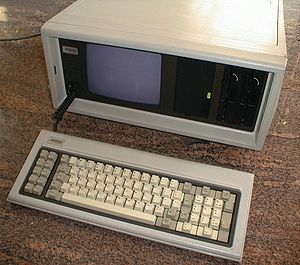
Comment: It weighed in at 35 pounds but was called a portable. Harvard Business School forced us all to buy it — we were the first class to be at all automated at the school.
Below is a photo of a truly portable laptop computer I designed in 1981. Way ahead of its time. Not even technically feasible, but I was a prescient industrial design student. That is a photo of me (a bit tongue in cheek) dressed up in my homemade “businesswoman” suit about to give my presentation in my studio class.


Name: Clive Bearman, Head of Marketing at Lexumo
First Computer: A Sinclair ZX81 with 1K of RAM
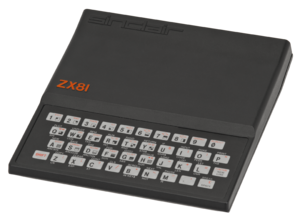
Used For: Games. Some BASIC programming.

Name: Keith Gillette, Founder & Factotum at TaskTrain
First Computer: TI-99/4A
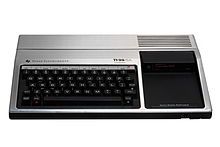
Used For: BASIC programming (saved to cassette drive); Star Trek; Hunt The Wumpus.

Name: Daniel Glasser, Director of Client Operations at Neurala
First Computer: IBM PCjr. My second computer was a 386sx/20 with 1MB of RAM, a 20MB hard drive, and a state-of-the-art CD-ROM (1x of course). It also came loaded with GeoWorks, which was a short-lived Windows competitor.
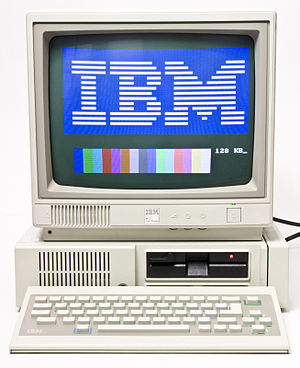
Used For: Mostly playing games loaded off 5 1/4" floppy disks. It didn't have a hard drive, so you had to boot it off the disk you wanted to use.

Name: Alan deLespinasse, Tech Lead at Agora
First Computer: TRS-80 Model 1 (4k RAM, tape drive)
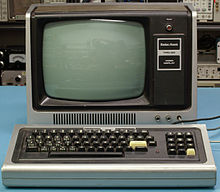
Used For: The game selection was pretty limited, so I learned BASIC and wrote my own. I was 6 when we got it, but I don't think I wrote any games worth playing until I was 8. It helped when we upgraded to Level 2 BASIC and 16k of RAM, which I think cost like $800.

Name: Jill Minkin, Product Manager at Seth B Minkin Studios
First Computer: North Star Advantage

Used For: Playing the graphics free version of "Adventure" while all of my cool friends played the relatively graphics rich "Winter Games" on their Commodore 64's.

Name: Scott Centurino, Former Chief Operating Officer of Compete
First Computer: An original Atari 800 (i.e. with the never-used right cartridge slot). My parents splurged on a double-density 5.25 floppy drive and a high-res (for the day) dot-matrix printer.
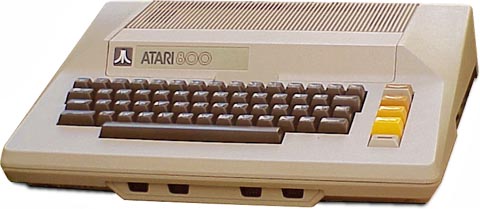
Used For: Word processing, games, and fledgling programming. I still have the machine and the floppy drive (although most of the disks have degraded past readable)!

Name: Jon Finegold, Founder of Digital Jolt
First Computer: TI-99/4A

Used For: Taught myself BASIC programming, wrote a version of Pac-Man and Donkey Kong.

Name: Alex Zavorski, VP of Product Management at CloudZero
First Computer: DEC VT180 "Robin"
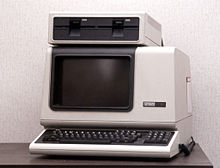
Used For: Word Processing, Zork.

Name: Chris Nahil, President at Message & Medium
First Computer: DECmate. I can actually picture the old DECmate in our family’s study in the house I grew up in. My Dad was a long-time DEC-ie, which is how we ended up with the computer at home in the first place.

Used For: Word Processing.

Name: Greg Kushmerek, Senior Solutions Engineer at Instart Logic
First Computer: Commodore VIC-20
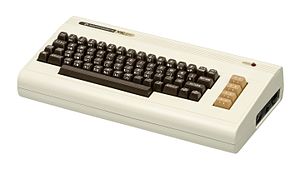
Used For: Games, Telecom (300 baud modem!).

Name: Tom Mollerus, Former Web Platform Lead at Lexumo
First Computer: Apple II Plus

Used For: Games and simple BASIC programming.

Name: Rick Umali, Senior Data Engineer at FirstFuel Software
First Computer: Commodore VIC-20

Used For: Programming (BASIC); games; word processing.

Name: Zeb Kimmel, Founder & CEO of Atlas5D
First Computer: Texas Instruments TI-99/4A

Used For: Taught myself how to code (in BASIC). The TI-99/4A was a wonderful machine.
Alexander Culafi is a contributor at VentureFizz. You can follow him on Twitter @culafia.
Images courtesy of article participants, Wikipedia, OldComputers.net, & Old-Computers.com.

